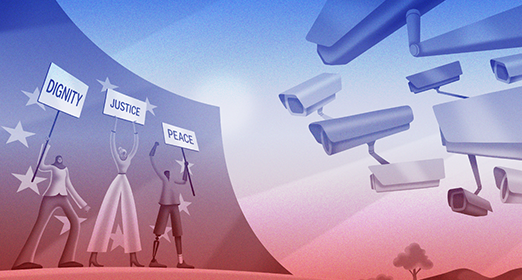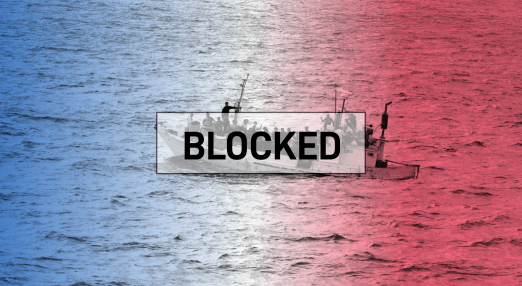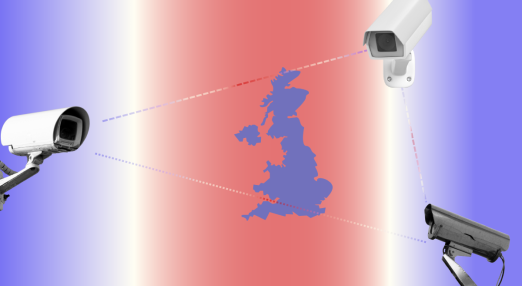#FreedomOfExpression
Filter by...
-

Unprecedented appearance by European Commissioner for Home Affairs, innovating on quicksand, and the cabinet vs. online confidentiality
Read through the most interesting developments at the intersection of human rights and technology from the Netherlands. This is the second update in this series.
Read more
-

Repression is really something different than prevention
In 2021, a 17-year-old boy in the Netherlands was arrested for inciting of riots. The boy had called for people to come to Utrecht with fireworks as a protest against the corona policy and the fireworks ban. The boy received a so-called "online area ban" from the municipality, even though the mayor does not have a legal basis for such an order. He was no longer allowed to make statements online that could lead to disorder in the city. Local rules do not provide majors the authority to curtail the freedom of expression as prevention, online or otherwise.
Read more
-

The UK will treat online images of immigrants crossing the Channel as a criminal offence
On 17 January, the United Kingdom (UK) government announced that online platforms will have to proactively remove images of immigrants crossing the Channel in small boats under a new amendment to be tabled to the Online Safety Bill. The announcement, intended to bolster the UK’s hostile immigration policy, has been met with concern among the British public and charities working with people on the move.
Read more
-

European Parliament approves a timid online political advertising proposal
Tomorrow, 2 February, the European Parliament will vote on the regulation on the transparency and targeting of political advertising proposal in plenary. Although this regulation intended to restrict the use of personal data to target online political advertisements, important proposals to tackle the root causes of data-driven vote manipulation were watered down during the discussion in the Parliament.
Read more
-

Update: UK’s Online Safety Bill heralds a trio of surveillance
The UK’s Online Safety Bill was back in the Westminster Parliament in December It had been stalled for five months whilst the new British government made a few changes. A Parliamentary debate on Monday (5 December 2022) revealed the shift in policy direction for the first time. It’s a relatively small change with big implications. Read more about the changes.
Read more
-

European Parliament approves rights-respecting DSA & proposes ban on use of sensitive personal data for online ads
Today's upcoming vote by the European Parliament's (EP) on the Digital Services Act (DSA) is expected to be a good step forward in protecting people’s rights on the internet, including freedom of expression and information, right to safety and the right to privacy, which EDRi has strongly and consistently advocated for.
Read more
-

The deterrent effect of the Julian Hessenthaler case: Criminal prosecution must not lead to diminished freedom of opinion
At the start of the trial against security adviser Julian Hessenthaler, who played a key role in the making of the so-called Ibiza video, 15 Austrian and international human rights organisations express their concern that his excessive criminal prosecution could – intentionally – have a deterring effect on future sources or whistleblowers and the exercise of freedom of opinion, freedom of the press and freedom of information. Julian Hessenthaler has been in custody since the end of 2020 (at first awaiting extradition, now awaiting trial) because of drug- and document-related charges against him.
Read more
-

Spotify, don’t spy: global coalition of 180+ musicians and human rights groups take a stand against speech-recognition technology
“You can’t rock out when you’re under constant corporate surveillance. Spotify needs to drop this right now and do right by musicians, music fans, and all music workers.” - Tom Morello
Read more
-

European Parliament confirms new online censorship powers
EU regulation against ‘terrorist’ content online (TERREG) was approved without a final vote by the European Parliament on April 29th. The regulation will harm our ability to freely express ourselves and access information online.
Read more
-

Coalition of human rights and journalist organisations express concerns for free speech
On 25 March, 61 human rights and journalist organisations sent a joint letter to Members of the European Parliament, urging them to vote against the proposed Regulation on addressing the dissemination of terrorist content online.
Read more
-

59% of polled EU citizens decry anti-terror upload filters. You should too.
Following disruptions due to the COVID-19 crisis, the negotiations between the European Parliament and the Council of Ministers on the Terrorist Content Regulation are resuming this week.
Read more
